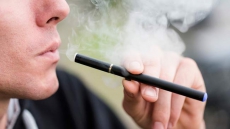Simply having more sex does not make couples happier because the increased frequency actually leads to a decline in wanting for and enjoyment of sex, says a team including an Indian-origin researcher from Carnegie Mellon University (CMU).
The desire to have sex decreases much more quickly than the enjoyment of sex once it has been initiated.
"Instead of focusing on increasing sexual frequency, couples may want to work on creating an environment that sparks their desire and makes the sex that they do have even more fun," explained research scientist Tamar Krishnamurti from CMU's department of engineering and public policy.
In the first study to examine the causal connection between sexual frequency and happiness, researchers experimentally assigned 128 couples to have more sex than others.
They observed both group's happiness over a three-month period. The couples instructed to increase sexual frequency did have more sex. However, it did not lead to increased, but instead to a small decrease, in happiness.
Looking further, the researchers found that couples instructed to have more sex reported lower sexual desire and a decrease in sexual enjoyment.
It was not that actually having more sex led to decreased wanting and liking for sex.
"Instead, it seemed to be just the fact that they were asked to do it, rather than initiating on their own," Krishnamurti noted.
Despite the results, the authors believe that most couples have too little sex for their own good and thinks that increasing sexual frequency in the right ways can be beneficial.
"The findings may actually help couples to improve their sex lives and their happiness," Krishnamurti pointed out.
"If we ran the study again, we would try to encourage subjects into initiating more sex in ways that put them in a sexy frame of mind rather than directing them to do so," added George Loewenstein, the study's lead investigator.
Being happy in the first place, for example, might lead someone to have more sex or being healthy might result in being both happier and having more sex, concluded the paper published in the Journal of Economic Behaviour & Organization.





